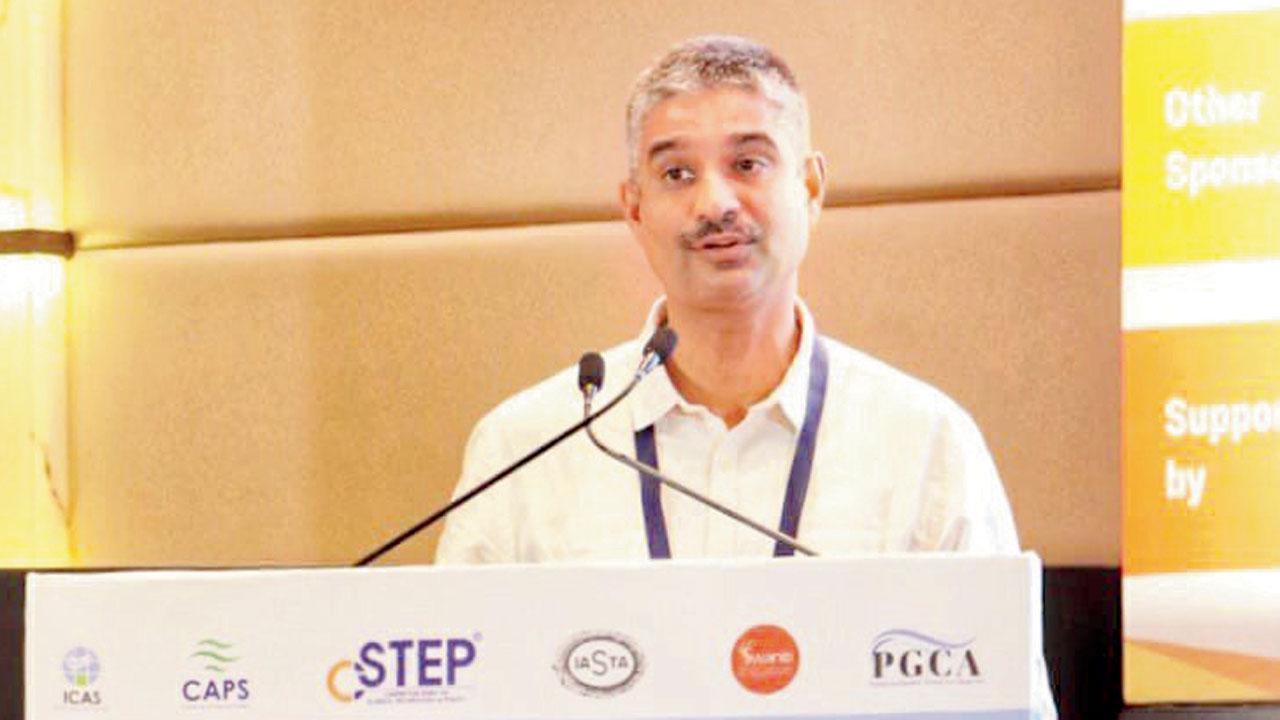IITM’s Air Quality Early Warning System will issue regular pollution forecasts and health advisories; will help vulnerable groups

Dr Sachin Ghude, scientist, IITM at the India Clean Air Summit (ICAS) 2023
In a step forward to combat the ever-growing problem of pollution, Mumbai will now get access to a one-of-its-kind air pollution monitoring portal developed by the Indian Institute of Tropical Meteorology (IITM). The Air Quality Early Warning System (AQEWS), which was successfully implemented in Delhi and Pune last year, will be used to capture, monitor, and disseminate real-time and forecasted data on pollution levels across the city.
ADVERTISEMENT
According to experts, the portal will be helpful for local municipal and pollution control bodies to disseminate real time air quality forecasts and health advisories. This will alert senior citizens, children and other vulnerable groups suffering from respiratory ailments.
A presentation on AQEWS was given at the ongoing India Clean Air Summit (ICAS) 2023, organised by the Center for Study of Science, Technology, and Policy (CSTEP). Mumbaikars will be able to access this data on the Tropmet website.
Sharing details about the portal, Dr Sachin Ghude, scientist, IITM said, “Capturing PM2.5 levels of such unprecedented magnitude is a global rarity, and we faced considerable challenges in collecting such exceptional data from the city. Our AQEWS relies on pinpoint accuracy, starting with precise weather forecasts as a foundation.”
IITM has integrated satellite data on Aerosol Optical Depth (AOD- measure of the effect of aerosols polluting the air) from an extensive network of 420 air quality monitoring stations across India. “This innovative system holds immense potential as a decision support tool for effective air quality management,” added Dr Ghude.
Also read: Kya aapke mercury mein retrograde hai?
In the MMR, a total of 24 monitoring stations have been installed at various locations. Within Greater Mumbai limits, there are 20 air quality monitoring stations, including at Navy Nagar, Malad West, Borivli East, Deonar, Powai, Mulund West, Bandra Kurla Complex and Chakala, Mahape, Vasai, Nerul and Kalyan.
Dr Pratima Singh, senior research scientist, Air Quality, CSTEP, said, “More sensors are required to monitor every neighbourhood. Citizen science can play a crucial role with the housing societies taking the initiative to install Low Cost Sensors (LCS).”
420
Number of air quality monitoring systems connected
 Subscribe today by clicking the link and stay updated with the latest news!" Click here!
Subscribe today by clicking the link and stay updated with the latest news!" Click here!







